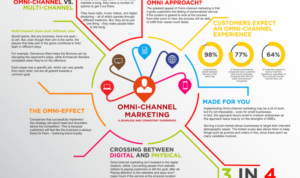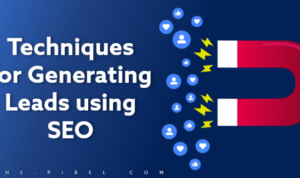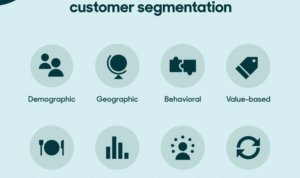Influencer Marketing for Small Business takes center stage, inviting readers into a world of strategic collaborations and creative campaigns that drive business growth. Get ready to dive into the dynamic realm of influencer marketing tailored for small businesses!
Overview of Influencer Marketing for Small Business

Influencer marketing is a powerful strategy where businesses collaborate with influential individuals on social media to promote their products or services to a larger audience. For small businesses, influencer marketing can be a game-changer, allowing them to reach a targeted audience and increase brand awareness in a cost-effective manner.
Importance of Influencer Marketing for Small Businesses
Small businesses often struggle to compete with larger corporations in terms of marketing budget and brand recognition. Influencer marketing provides a unique opportunity for small businesses to leverage the credibility and reach of influencers to connect with their target customers on a more personal level. By partnering with influencers who align with their brand values, small businesses can tap into new markets and drive sales growth.
Differences in Influencer Marketing for Small Businesses vs. Larger Corporations
While larger corporations may have bigger budgets to work with, small businesses can benefit from the authenticity and niche audience that influencers bring to the table. Influencers with a smaller following often have higher engagement rates and a more loyal fan base, making them ideal partners for small businesses looking to build relationships with their customers.
Successful Examples of Influencer Marketing Campaigns for Small Businesses
One great example is the partnership between a local coffee shop and a popular food blogger in the area. By featuring the blogger enjoying their coffee and sharing it with their followers, the coffee shop was able to attract new customers and increase foot traffic to their store. Another successful campaign was run by a handmade jewelry shop that collaborated with a fashion influencer to showcase their unique pieces. This resulted in a significant boost in online sales and brand visibility for the small business.
Identifying the Right Influencers

When it comes to selecting influencers for small businesses, it’s essential to consider certain criteria to ensure a successful partnership. Aligning influencer values with the brand’s values is crucial for maintaining authenticity and relevance. Finding influencers that resonate with the target audience of a small business can greatly impact the effectiveness of influencer marketing campaigns.
Criteria for Selecting Influencers
- Relevance: Choose influencers whose content aligns with your industry or niche.
- Engagement: Look for influencers with a highly engaged audience to ensure your message reaches the right people.
- Authenticity: Seek influencers who genuinely believe in your brand and can promote it authentically.
- Reach: Consider the influencer’s reach in terms of followers and the potential impact on your target audience.
Importance of Aligning Influencer Values with Brand’s Values
Aligning influencer values with your brand’s values is crucial for maintaining authenticity and building trust with your audience. When influencers genuinely believe in your brand, their endorsements will come across as more genuine and credible, leading to better results.
Tips for Finding Influencers that Resonate with Target Audience
- Use social media listening tools to identify influencers who are already engaging with your target audience.
- Look for influencers who share similar values and interests with your target audience to ensure a natural fit.
- Consider micro-influencers who may have a smaller following but a highly engaged and loyal audience within your niche.
- Collaborate with influencers who have a track record of successful partnerships with brands similar to yours.
Building Relationships with Influencers
Building strong partnerships with influencers is crucial for small businesses looking to leverage influencer marketing. By nurturing long-term relationships with influencers, businesses can benefit from more authentic and impactful collaborations rather than one-off deals.
Strategies for Establishing Strong Partnerships
- Research and identify influencers whose values align with your brand.
- Engage with influencers on social media by liking, commenting, and sharing their content.
- Offer value to influencers by providing exclusive access, discounts, or products.
- Collaborate on creative ideas and involve influencers in the content creation process.
Ways to Nurture Long-Term Relationships, Influencer Marketing for Small Business
- Communicate regularly and maintain open lines of dialogue with influencers.
- Provide ongoing support and show appreciation for their work.
- Offer opportunities for growth and development within the partnership.
- Consistently track and analyze the performance of influencer campaigns to optimize results.
Benefits of Fostering Genuine Connections
- Builds trust and credibility with the influencer’s audience.
- Creates opportunities for repeat collaborations and brand loyalty.
- Allows for more authentic and relatable content that resonates with followers.
- Establishes a stronger brand presence in the influencer’s niche community.
Creating Effective Influencer Marketing Campaigns: Influencer Marketing For Small Business
To design successful influencer marketing campaigns for small businesses, it is essential to follow a strategic approach that aligns with your brand objectives and target audience. Here are the key steps to create effective influencer marketing campaigns:
1. Define Your Goals and Objectives
- Set clear and measurable objectives for your campaign, such as increasing brand awareness, driving website traffic, or boosting sales.
- Identify specific key performance indicators (KPIs) to track the success of your campaign, such as engagement rates, click-through rates, or conversion rates.
2. Identify the Right Influencers
- Research and collaborate with influencers whose values, audience demographics, and content align with your brand and campaign goals.
- Consider micro-influencers who have a highly engaged and niche audience that can generate authentic promotion for your business.
3. Develop Creative Content Collaborations
- Create engaging and authentic content that resonates with both the influencer’s audience and your target customers.
- Encourage influencers to showcase your products or services in a creative and natural way that fits their content style.
4. Set Clear Objectives and Metrics
- Measure the success of your influencer marketing campaigns by tracking key metrics like reach, engagement, conversions, and ROI.
- Use tools like Google Analytics, social media insights, and influencer tracking platforms to monitor and analyze the performance of your campaigns.





